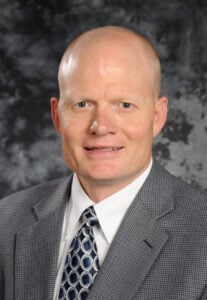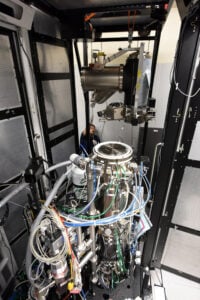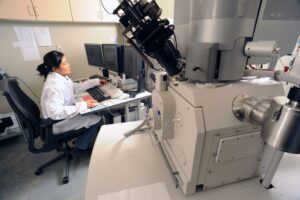Radiochemistry Laboratory
Researchers who utilize the Radiochemistry Laboratory are working to develop materials for use in advanced nuclear reactor systems, as well as investigating recovery and alternate use of materials from used nuclear systems. In most cases, experimenters incorporate the use of radioactive or irradiated materials as part of their research campaigns.
Scientists who perform research in the Radiochemistry Laboratory strive to answer the fundamental questions that will lead to viable solutions for advanced reactor deployment, management of used nuclear fuel materials, and development of novel materials that are intended for use in extreme environments.
The Radiochemistry Laboratory supports:
- Fundamental thermochemical and thermophysical property measurements for materials that are essential for fuel, core, and moderator development for advanced reactors.
- Heat transfer mechanisms for advanced reactor coolants that necessitate high temperature sensitivity studies
- Corrosion and compatibility studies for core and structural materials
- Recovery of critical materials for multicomponent waste streams, including radioactive materials
Current research projects include electrochemistry and gamma spectroscopy as well as other viable solutions for advanced reactor deployment, and development of novel materials intended for use in extreme environments.
Equipment includes:
Glove boxes capable of handling low-level radioactivity
Liquid simulation counter
Automatic proportional counter
Quick Facts
- Recent experimental work in the Radiochemistry Laboratory has supported a variety of projects that are critical to nuclear fuel & materials development, as well as waste management, for the Idaho National Laboratory and its university partners. A few examples include:
- Rare earth and lanthanide separation studies for used nuclear fuel management
- Electrochemical corrosion studies for material degradation analysis
- Redox investigations for critical material recovery
- Laser-based spectral analysis tools for molten salt sampling system
These projects are accommodated by a collection of state-of-the-art equipment, including three inert-environment regenerative gloveboxes and five chemical fume hoods (one of which is exclusive to radioactive material experiments). Equipment necessary to support high-temperature experiments (muffle furnaces, etc.) are also available for use
Research
- Fundamental property determination for advanced reactor coolants, such as molten sodium and salts (fluoride and chloride-based)
- Fluid/structure interaction studies for advanced reactor coolant and structural material candidates
- Chemical interaction studies for advanced high-temperature coolantsAnalysis of heat transfer systems for high-temperature reactor systems
- Thermophysical property studies for advanced fuel concepts, such as those based on graphite/ceramic matrices
News
Advanced Visualization Lab Publishes 15-Year Study
Researchers in the CAES Applied Visualization Lab (AVL) recently published a study sharing experiences and lessons learned during the lab’s 15 years in operation. Inside the lab, you’ll find the...
Read MoreIdaho National Laboratory and Colorado School of Mines expand research partnership
Idaho National Laboratory (INL) and the Colorado School of Mines (CSM) have signed a memorandum of understanding to expand their joint efforts in scientific research over the next five years....
Read MoreCAES hosts VIPs from Ohio State University
CAES hosted a great visit by Ohio State University’s Center for Design and Manufacturing Excellence this week. Ed Herderick, the Center’s Additive Manufacturing director, and Executive Director Nate Ames, received...
Read MoreMaCS Seed Grant Program Awards up to $5K each
The Center for Advanced Energy Studies (CAES) is pleased to announce a MaCS Seed Grant Program. With support from Boise State CAES, Idaho State CAES, and the Boise State Micron...
Read More








